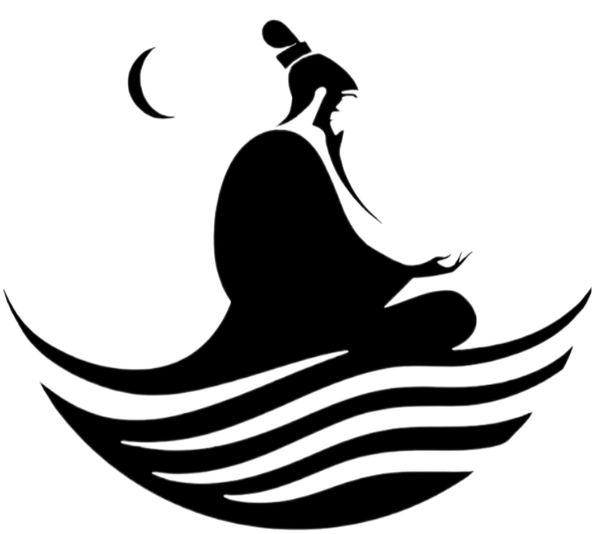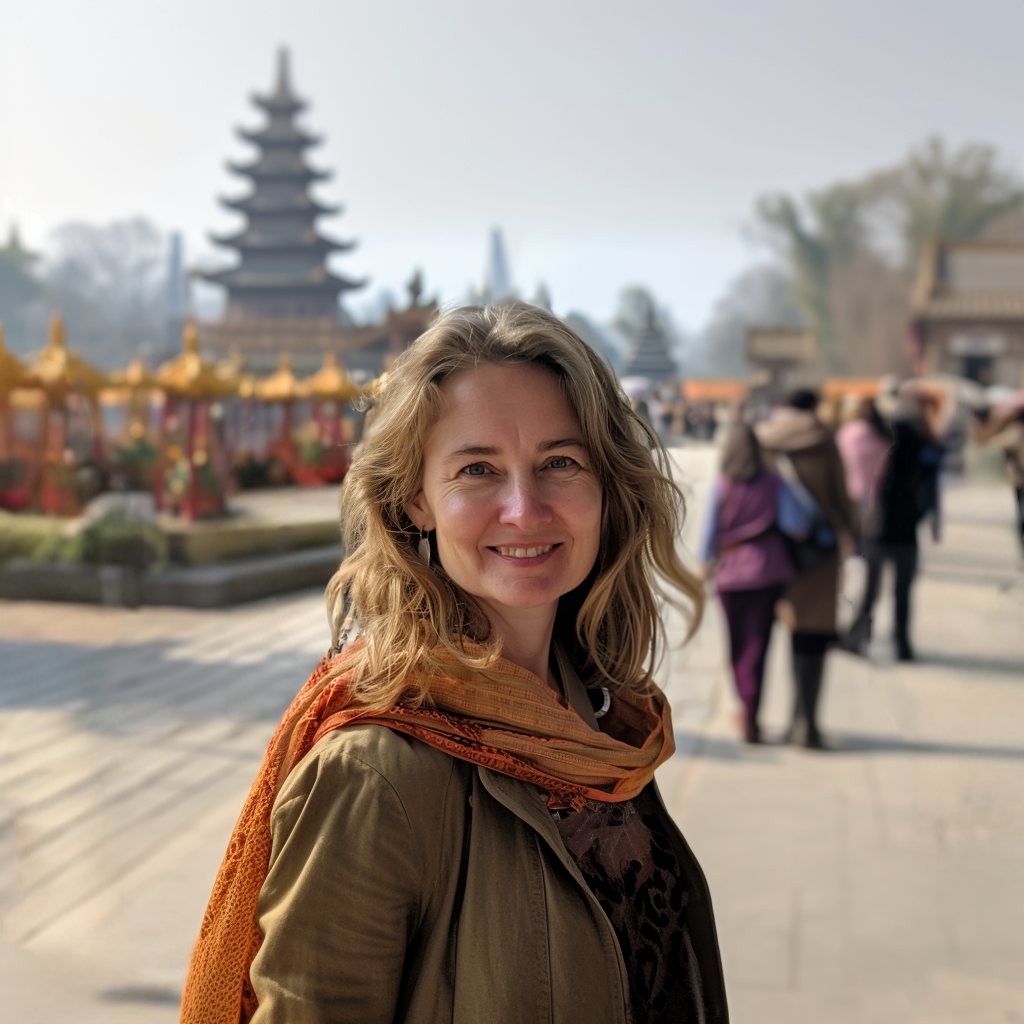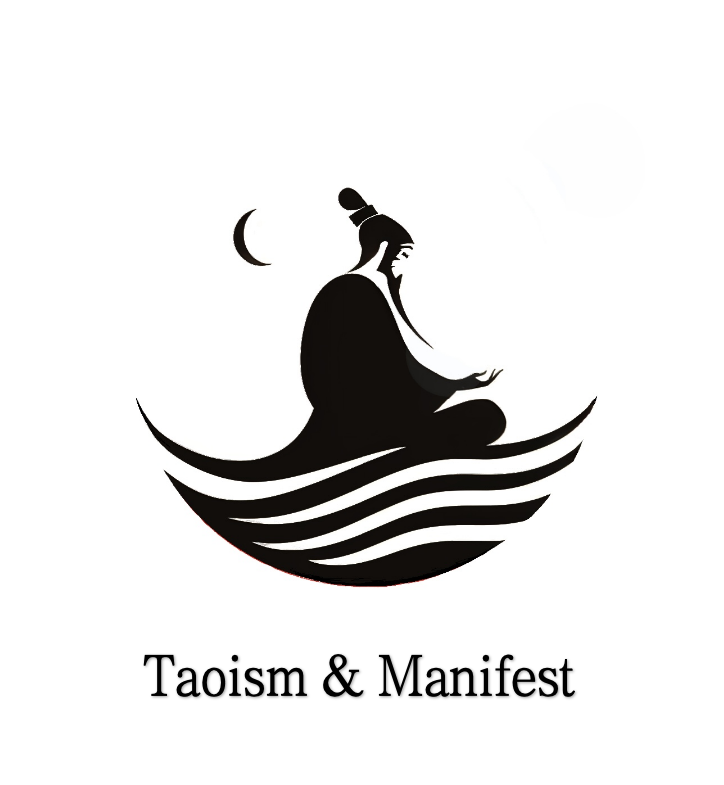
Understanding Wu-Wei Through Butcher Ding

The story of Butcher Ding offers a vivid glimpse into the Taoist concept of Wu-Wei, or effortless action. You witness a butcher transforming his craft into an art form by aligning his movements with the natural structure of the ox. This mastery reflects the essence of Taoism, where harmony with nature leads to profound skill. In ancient Chinese traditions, such as those tied to 庖丁解牛, this philosophy teaches you to embrace balance and flow in life. By observing Butcher Ding, you can uncover timeless lessons about living in sync with the Tao.
Key Takeaways
Embrace harmony with nature by aligning your actions with the natural flow of life, just as Butcher Ding does with the ox.
Recognize that mastery comes from years of practice and understanding, not just technical skill; be patient in your journey.
Practice Wu-Wei, or effortless action, by letting go of forceful efforts and adapting to the rhythm of your tasks.
Nourish your well-being by living in balance and avoiding unnecessary stress, similar to how Butcher Ding cares for his knife.
Seek deeper connections in your work and relationships by understanding the underlying patterns and unity within diversity.
Cultivate mindfulness and observation to enhance decision-making, allowing you to navigate challenges with grace.
Let go of rigid control in your life; trust the process and allow things to unfold naturally for greater fulfillment.
The Story of Butcher Ding: A Master at Work
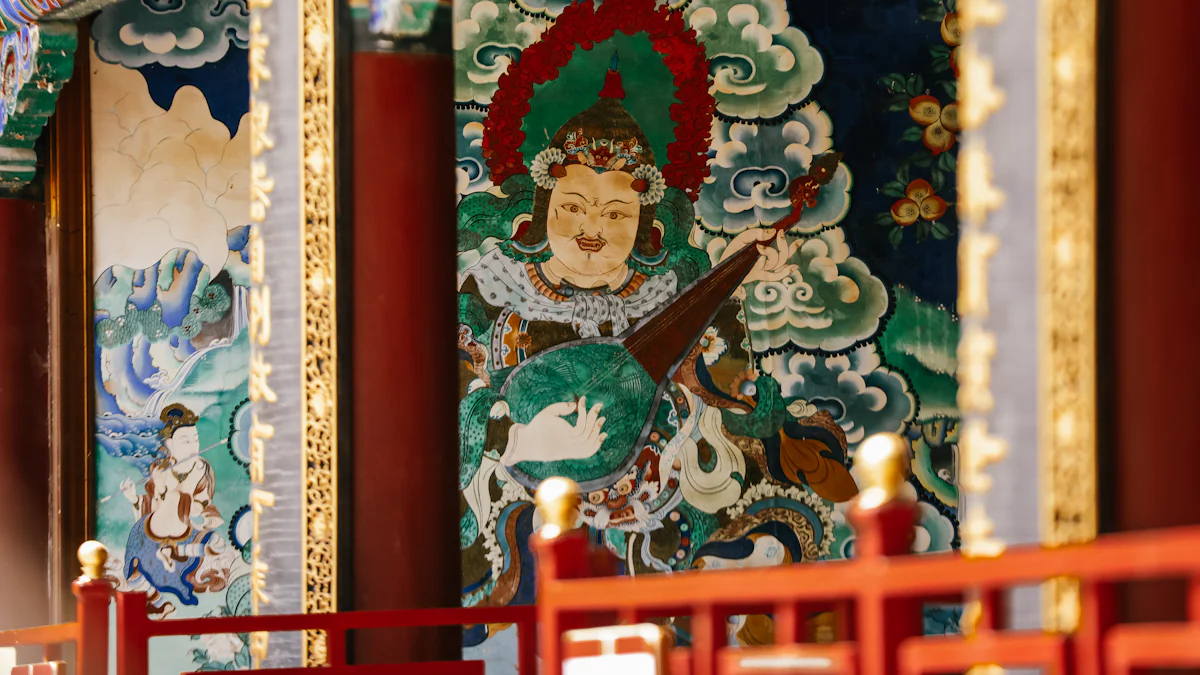
A Brief Summary of the Story
The story of Butcher Ding, found in the Taoist classic Zhuangzi, introduces you to a butcher who astonishes King Hui with his extraordinary skill in carving an ox. Butcher Ding explains that his mastery comes not from brute force or rigid technique but from understanding the natural structure of the ox. He moves his knife effortlessly, gliding through the spaces between the joints, avoiding resistance entirely. Over nineteen years of practice, his blade remains as sharp as when he first began. This is because he works with the natural flow of the ox’s anatomy rather than against it.
Butcher Ding’s approach reflects the Taoist principle of Wu-Wei, or effortless action. He doesn’t impose his will on the ox. Instead, he aligns his actions with its natural form. His work becomes a dance of precision and grace, embodying the harmony between human skill and nature’s design. This story, often referred to as 庖丁解牛, serves as a metaphor for living in accordance with the Tao, where effortlessness arises from deep understanding and alignment with the natural order.
Key Themes in the Story
Harmony with Nature
The story emphasizes the importance of working in harmony with the natural world. Butcher Ding doesn’t fight against the ox’s structure. Instead, he respects its design and adapts his movements accordingly. This theme teaches you to observe and align with the natural flow of life, whether in work, relationships, or personal growth.Mastery Through Practice
Butcher Ding’s skill didn’t appear overnight. Years of practice allowed him to develop an intuitive understanding of the ox’s anatomy. His journey highlights the Taoist belief that true mastery comes from patience, dedication, and a willingness to learn from experience. You can apply this principle to any craft or discipline, recognizing that mastery evolves over time.Effortless Action (Wu-Wei)
Wu-Wei, or effortless action, lies at the heart of the story. Butcher Ding achieves his remarkable skill by letting go of forceful effort and instead flowing with the natural rhythm of his task. This concept encourages you to approach challenges with ease and adaptability, trusting that solutions often emerge when you stop resisting and start flowing.Nourishing Life
The story also explores the Taoist idea of nourishing life. By working with care and precision, Butcher Ding preserves the longevity of his knife and avoids unnecessary strain. This theme reminds you to care for your body, mind, and spirit by living in balance and avoiding unnecessary conflict or stress.
“What I care about is the Way, which goes beyond skill,” says Butcher Ding. This profound statement encapsulates the essence of the story. It invites you to look beyond technical expertise and seek a deeper connection with the Tao, the underlying principle of harmony and balance in the universe.
Through these themes, the story of Butcher Ding offers timeless wisdom. It challenges you to rethink how you approach your daily tasks and interactions. By embracing the principles of Wu-Wei and aligning with the natural flow, you can cultivate a life of grace, balance, and fulfillment.
The Taoist Philosophy of Wu-Wei
Unity in Diversity
The philosophy of Wu-Wei, as seen in 庖丁解牛中的道教思想, teaches you to recognize unity within diversity. Butcher Ding’s ability to navigate the ox’s anatomy reflects this principle. He doesn’t view the ox as a single, rigid entity. Instead, he sees it as a collection of interconnected parts, each with its own role and purpose. By understanding these individual components, he achieves harmony in his work.
This concept applies to your life as well. When you face challenges, breaking them into smaller, manageable parts can help you find solutions more effectively. Wu-Wei encourages you to embrace the diversity of life’s elements while recognizing their underlying unity. This perspective fosters a sense of interconnectedness, reminding you that every part contributes to the whole.
“The Way is in the spaces,” Butcher Ding explains. This insight highlights the importance of observing the gaps and connections in life. By focusing on these spaces, you can move through life with greater ease and understanding.
Unity in diversity also emphasizes the value of balance. Just as Butcher Ding balances precision and intuition, you can balance different aspects of your life. Whether it’s work, relationships, or personal growth, finding harmony among diverse elements leads to a more fulfilling existence.
Natural Harmony and Balance
Wu-Wei revolves around aligning with the natural flow of life. In 庖丁解牛中的道教思想, Butcher Ding demonstrates this by working with the ox’s natural structure rather than forcing his way through it. His movements flow effortlessly because they align with the ox’s anatomy. This principle teaches you to act in harmony with your surroundings instead of resisting them.
In your daily life, this means observing the natural rhythm of events and adapting to them. For example, when you encounter obstacles, forcing solutions often leads to frustration. Instead, Wu-Wei encourages you to pause, reflect, and find a path that aligns with the situation. This approach not only reduces stress but also enhances your effectiveness.
“Effortless action arises from understanding,” Taoist teachings suggest. This idea underscores the importance of awareness and adaptability. By understanding the natural flow of events, you can act with precision and grace.
Natural harmony also involves caring for yourself and your environment. Butcher Ding preserves the longevity of his knife by avoiding unnecessary strain. Similarly, you can nurture your well-being by living in balance. This includes maintaining physical health, cultivating mental clarity, and fostering meaningful connections. Wu-Wei reminds you that harmony begins within and extends outward.
Through the lens of 庖丁解牛, you see that life’s challenges don’t require forceful action. Instead, they call for thoughtful alignment with the natural order. By embracing this philosophy, you can cultivate a life of balance, peace, and effortless flow.
Lessons from Butcher Ding: the Way and Mastery
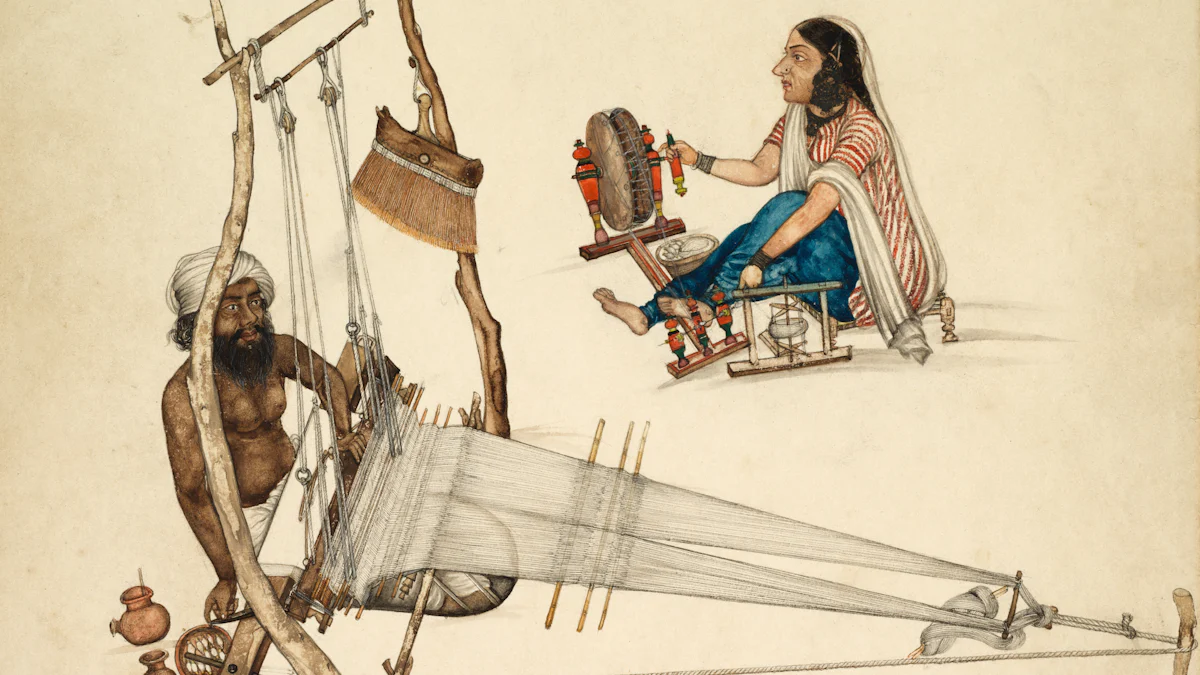
Going Beyond Technique
Mastery transcends technical skill. Butcher Ding’s story illustrates this beautifully. He doesn’t rely solely on his knife or his physical strength. Instead, he focuses on understanding the natural structure of the ox. This approach reflects the Taoist belief that true mastery comes from aligning with the essence of what you do.
When you go beyond technique, you stop seeing tasks as mechanical processes. You begin to see the deeper connections and patterns within them. For example, in your personal growth, forcing change often leads to frustration. By trusting the process and letting things unfold naturally, you can achieve growth with less resistance. This principle applies to all areas of life, from learning a new skill to navigating relationships.
“What I care about is the Way, which goes beyond skill,” says Butcher Ding. This statement reminds you to look beyond surface-level expertise. Seek a deeper understanding of the task at hand and its connection to the larger flow of life.
By embracing this mindset, you can move from mere competence to true mastery. You begin to act with intention and awareness, creating harmony between your actions and the world around you.
Go with the Flow
The concept of Wu-Wei encourages you to move with the natural rhythm of life. Butcher Ding’s effortless movements demonstrate this principle. He doesn’t force his knife through the ox. Instead, he glides through the spaces, avoiding resistance. This approach teaches you to adapt to circumstances rather than fight against them.
In your daily life, going with the flow means recognizing when to act and when to step back. For instance, in your professional life, balancing action with patience can reduce stress and lead to better outcomes. Trusting the process allows you to achieve success without unnecessary effort.
Nature offers countless examples of this principle. Rivers don’t carve their paths by force; they flow around obstacles, finding the easiest route. Similarly, when you align your actions with the natural flow of events, you can achieve your goals more effectively.
“Effortless action arises from understanding,” Taoist teachings suggest. This idea encourages you to observe and adapt to the world around you. By doing so, you can navigate challenges with grace and ease.
Going with the flow doesn’t mean passivity. It means acting in harmony with the situation. By embracing this principle, you can find balance and fulfillment in both your personal and professional life.
Caring for Life and the Tao
Butcher Ding’s story also highlights the importance of caring for life. He preserves the longevity of his knife by avoiding unnecessary strain. This reflects the Taoist idea of living in balance and nurturing what sustains you.
In your life, caring for yourself and your surroundings is essential. This includes maintaining your physical health, cultivating mental clarity, and fostering meaningful relationships. By living in harmony with the Tao, you can reduce stress and create a sense of inner peace.
For example, when you stop trying to control every aspect of your life, you allow things to happen naturally. This approach can bring you true fulfillment. Whether it’s letting go of rigid plans or acknowledging your emotions, embracing the principles of Wu-Wei helps you find harmony.
“When you stop trying to fall asleep, you finally drift away.” This analogy captures the essence of Wu-Wei. By letting go of control, you create space for things to unfold effortlessly.
Caring for life also means respecting the interconnectedness of all things. The philosophy of 庖丁解牛中的道教思想 teaches you to see the unity within diversity. By nurturing this perspective, you can live in alignment with the Tao and experience the profound peace it brings.
Butcher Ding’s story reveals the profound wisdom of Wu-Wei and mastery. His practice teaches you that true skill emerges from aligning with natural patterns, not intellectual force. By embracing effortless action, you can navigate life with grace and balance. These timeless principles remain relevant today, offering guidance for reducing stress and enhancing well-being. Reflect on how you can apply this philosophy to your daily life. Whether it’s nourishing your body, mind, or relationships, living in harmony with the Tao empowers you to thrive with purpose and ease.
FAQ
What is Wu-Wei?
Wu-Wei represents the Taoist principle of "effortless action." It encourages you to align with the natural flow of life rather than forcing your way through challenges. This doesn’t mean passivity. Instead, it involves purposeful non-doing, where you act mindfully and adapt to situations as they unfold.
How does Wu-Wei differ from inaction?
Wu-Wei is not about doing nothing. It’s about letting go of unnecessary effort and resistance. You remain proactive but avoid forcing outcomes. By observing and understanding the natural rhythm of events, you can act with precision and ease, achieving results without unnecessary struggle.
What is the essence of Wu-Wei?
The essence of Wu-Wei lies in releasing control and trusting the process. It teaches you to drop activities that reinforce a rigid sense of self. By letting go of the belief that everything must go exactly as planned, you open yourself to new possibilities and solutions.
"Effortless action arises from understanding," as Taoist teachings suggest. This insight reminds you to embrace adaptability and flow with life’s changes.
How can you practice Wu-Wei in daily life?
Practicing Wu-Wei involves aligning your actions with the natural flow of life. You can start by simplifying your routines. Declutter your living space, limit technology use, and create a balanced schedule. These steps help you reduce distractions and focus on what truly matters.
Can Wu-Wei help with stress management?
Yes, Wu-Wei offers a powerful approach to managing stress. By letting go of the need to control every situation, you reduce tension and anxiety. When you stop resisting life’s natural flow, you create space for calmness and clarity. This mindset allows you to handle challenges with greater ease.
Is Wu-Wei relevant in modern life?
Absolutely. Wu-Wei’s principles are timeless and adaptable. In today’s fast-paced world, its emphasis on balance and harmony can help you navigate work, relationships, and personal growth. By embracing effortless action, you can achieve more while feeling less overwhelmed.
